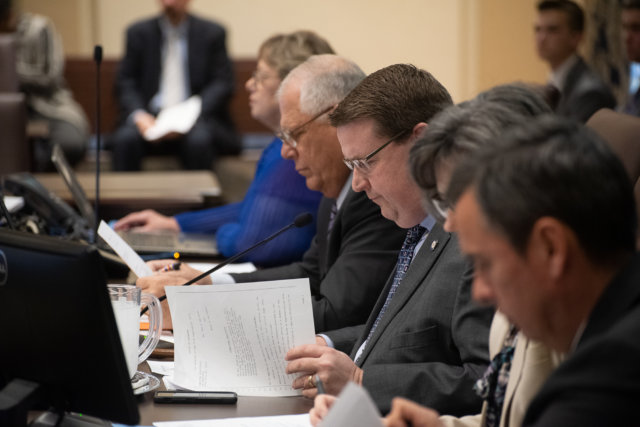

If you’re a regular reader of NonDoc, I’m going to venture a guess that you’re a pretty informed citizen. You probably have a good grasp on education funding, criminal justice reform and more than you would have ever imagined about train crossings.
You’ve probably also seen headlines over the last year detailing the disturbing number of instances when Oklahoma agencies have been unable to fully account for their budgets and spending.
State Chamber Research Foundation
Policy Pitch is a series of issue-focused commentaries available for entities with advertising
packages on NonDoc.
Some have been quick to judge the agencies. Others have been quick to judge the Legislature. The Legislature is, after all, the branch of state government tasked with monitoring agency spending and performance in our system of checks and balances.
But, like almost anything in government, it’s not that simple.
The Oklahoma Legislature was created at statehood as a part-time body of citizen legislators when Oklahoma’s executive branch served a population less than half its current size. Today, the Oklahoma Legislature is still a part-time body, but is now responsible for providing oversight for approximately 200 state agencies that receive a total of $7.5 billion in state appropriated funds and an additional $6.4 billion in federal funds. This is a monumental task, and the resources we currently dedicate to empowering the legislative branch to do this critical job are simply not adequate.
I know this because I spent seven years on staff with the Oklahoma Legislature. After the consideration of over 2,000 pieces of legislation each session, crafting a balanced annual budget amid volatile revenue cycles and responding to dozens of constituent calls, emails and visits each day, little — if any — time remains for equipping Oklahoma legislators with the information they need for good government policy making.
Direct appointments, a reform championed by the State Chamber Research Foundation’s OK2030 initiative and Gov. Kevin Stitt, are an important new accountability safeguard put in place this year. But true government accountability is also about empowering success. And should something ever go awry, it’s about fixing the problem swiftly and ensuring it never happens again.
SB 1 and HB 2484 ‘vitally important’
This is why two bills, SB 1 and HB 2484, are so vitally important to ending the drama of agency scandals. These bills create an independent entity within the legislative branch to improve accountability, empower success and provide better oversight of state agencies so that we can identify any irregularities and keep them from flaring into full-blown crises.
This concept is not new. Similar offices exist at the federal level as well as in dozens of other states. The most effective models serve as a resource to elected officials by providing continual oversight of agency spending and measuring performance. They also serve as an independent body to evaluate and monitor the myriad of agency regulations that impact the daily lives of our citizens and our businesses.
Our current governance model has not set Oklahoma agencies up for either accountability or success. We cannot just sit and watch the fires; we have to be part of the solution by calling on our legislators to advance reforms including legislation that creates an independent office for government accountability.
Success is rarely accidental, and even hard work and good intentions are not always enough. We must better design for success to ensure our government systems are efficient and our agencies are high-performing.





















